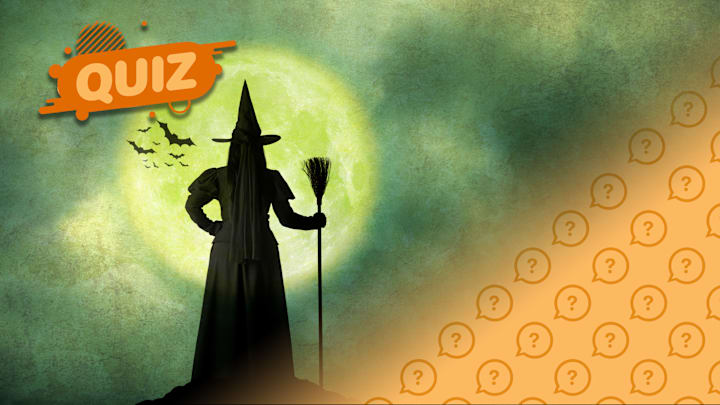The world has gone through many moral panics over the centuries, but none were as dramatic—or fatal—as the paranoia over witchcraft. The most famous example took place in Salem, Massachusetts, in 1692–93, which began when some young girls in the community started exhibiting “symptoms” of witchery like convulsions. In all, 20 poor souls (including six men) were executed for their purported interest in the black arts, though the evidence could be as scant as someone having a bad dream about them.
Would you have qualified as a witch in the 17th century? Take this quiz and find out.
While the Salem witch trials are the most prominent in history, they were preceded by other witchcraft hysteria. In 1590, Agnes Sampson was brought to trial on charges she tried to use black magic to harm Scotland’s king, James VI. A false confession brought about by torture sealed her fate: She was sentenced to death.
Why all the histrionics over witches? As Dr. Hannah Worthen of the University of Hull writes for the UK’s National Archives, witchcraft was “perceived to be a threat to the church and a well-ordered society,” with accusations spiking “[i]n times of uncertainty and upheaval.” In Salem, for example, decades of war with local Native Americans and the uncertainty caused by shrinking numbers of Puritan churchgoers likely contributed to the hysteria. Some have theorized ergot poisoning from contaminated bread was to blame for the erratic behavior displayed by "witches."
Massachusetts recognized the injustice of it all, albeit too late for it to matter much to the victims: The state made a formal apology in 1957. In 2022, Scotland’s First Minister, Nicola Sturgeon, also issued a public apology to those harmed or killed by the panic.
Take Our Most Recent Quizzes:
